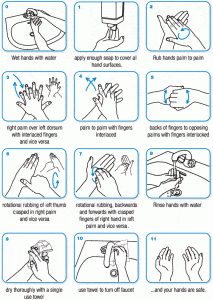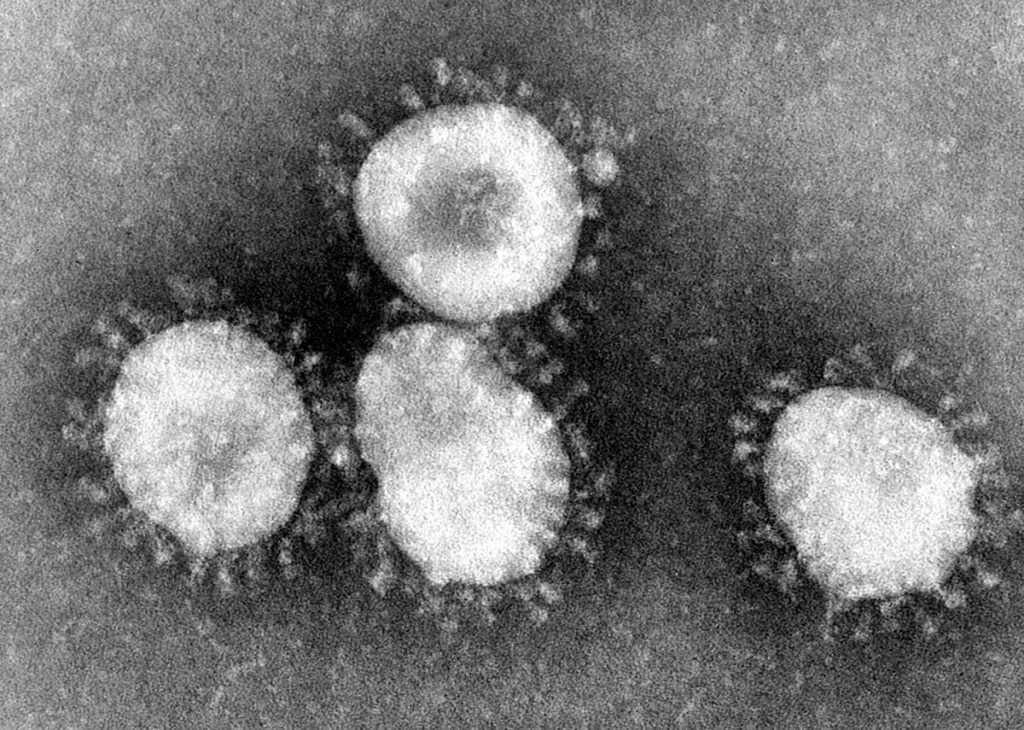What is a Coronavirus?
The name coronavirus is derived from the Latin word corona meaning crown or halo, which is in reference to its characteristic appearance similar to a crown when viewed under an electron microscope. Coronaviruses are a large family of viruses that are zoonotic, meaning they can be transmitted between animals and humans. Detailed investigations found that Severe Acute Respiratory Syndrome (SARS-CoV) was transmitted from civet cats to humans and Middle East Respiratory Syndrome (MERS-CoV) from dromedary camels to humans. Several known coronaviruses are circulating in animals that have not yet infected humans. The most recently discovered coronavirus causes coronavirus disease COVID-19. This new virus was unknown before the outbreak began in Wuhan, China, in December 2019.
What are the symptoms?
When you have a virus, it’s not actually the virus that makes you sick, but your immune system’s efforts to get rid of it. For example, your immune system can raise your body temperature and give you a fever, to make it hot enough to kill a virus. All the hard work your immune system is doing can also use up energy and make you feel tired. Everybody is different and may experience different symptoms of different severity, but the most common symptoms of COVID-19 are:
- fever
- cough
- sore throat
- fatigue
- and shortness of breath
Some people become infected but don’t develop any symptoms and don’t feel unwell.
What can I do to protect myself?
Stay aware of the latest information on the outbreak, available on the WHO website and through your national and local public health authority. We will be regularly updating this page in response to any changes or further information regarding COVID-19. You can reduce your chances of becoming infected, and reduce the spread of disease by taking some simple precautions;
- Regularly and thoroughly wash your hands with soap and water or by using an alcohol based hand rub
- Practice social distancing when out in public by maintaining at least 1.5 metre distance between yourself and others
- Avoid touching your eyes, nose and mouth
- Make sure you, and the people around you, practice good cough etiquette. This means coughing or sneezing into a tissue, disposing of the tissue into a bin immediately and then washing your hands. If no tissues are available, practice the ‘vampire cough’ by coughing or sneezing into your elbow
- If you feel unwell, please stay at home. If you have a fever, cough and difficulty breathing, seek medical attention and call in advance for advice on how to proceed

What to do if you suspect you or a family member has COVID-19
In Queensland, testing may be done for people who have fever (or history of fever e.g night sweats) OR acute respiratory symptoms (cough, sore throat, shortness of breath).
If you are unwell and you meet the above criteria, you should contact our clinic immediately, where a doctor will decide if you need to be tested for COVID-19.
Before your appointment, please call ahead and tell us about your symptoms so we can prepare for your visit. We may direct you to the nearest fever clinic for testing, or choose to take the test from your car at our medical centre. Please note that no suspected COVID-19 patients enter our clinic, and we strictly adhere to the latest environmental cleaning advice to best protect our patients and our staff.
Testing
Testing for COVID-19 involves collecting nasal (inside your nose) or throat swabs, and/or sputum (mucus coughed up). These samples are then transferred to the nearest laboratory that is set up to test for COVID-19.
If you are tested for COVID-19 but aren’t really sick, you may be sent home to self-isolate while you wait for the test results. This may take several days.
If you are really sick you may be admitted to hospital for treatment. If you become sicker while you are waiting for results, please contact your doctor or call an ambulance. Make sure you let them know you are waiting for test results for COVID-19.
If the result is positive, you will receive a call from a public health doctor or nurse who will tell you what to do next. If you are well enough to take care of yourself, you will need to stay at home in self-isolation until you recover. If you get sicker, you may be admitted to hospital in an isolation area.
If the result is negative, the doctor who tested you will let you know. If you have been issued with a notice telling you to self-quarantine, you must stay in self-quarantine until the end date written on the notice, even if you get a negative result. This is because you may still develop COVID-19 infection.
If you are waiting on a test result, the people you live with and other close contacts do not need to be in quarantine unless the local public health unit tells them to. They should stay away from the sick person as much as possible. If the test result is positive, they may be assessed as a close contact and will then need to be in quarantine.
This page will be updated regularly with the latest information.
This information has been adapted from the The World Health Organisation and Queensland Government.

